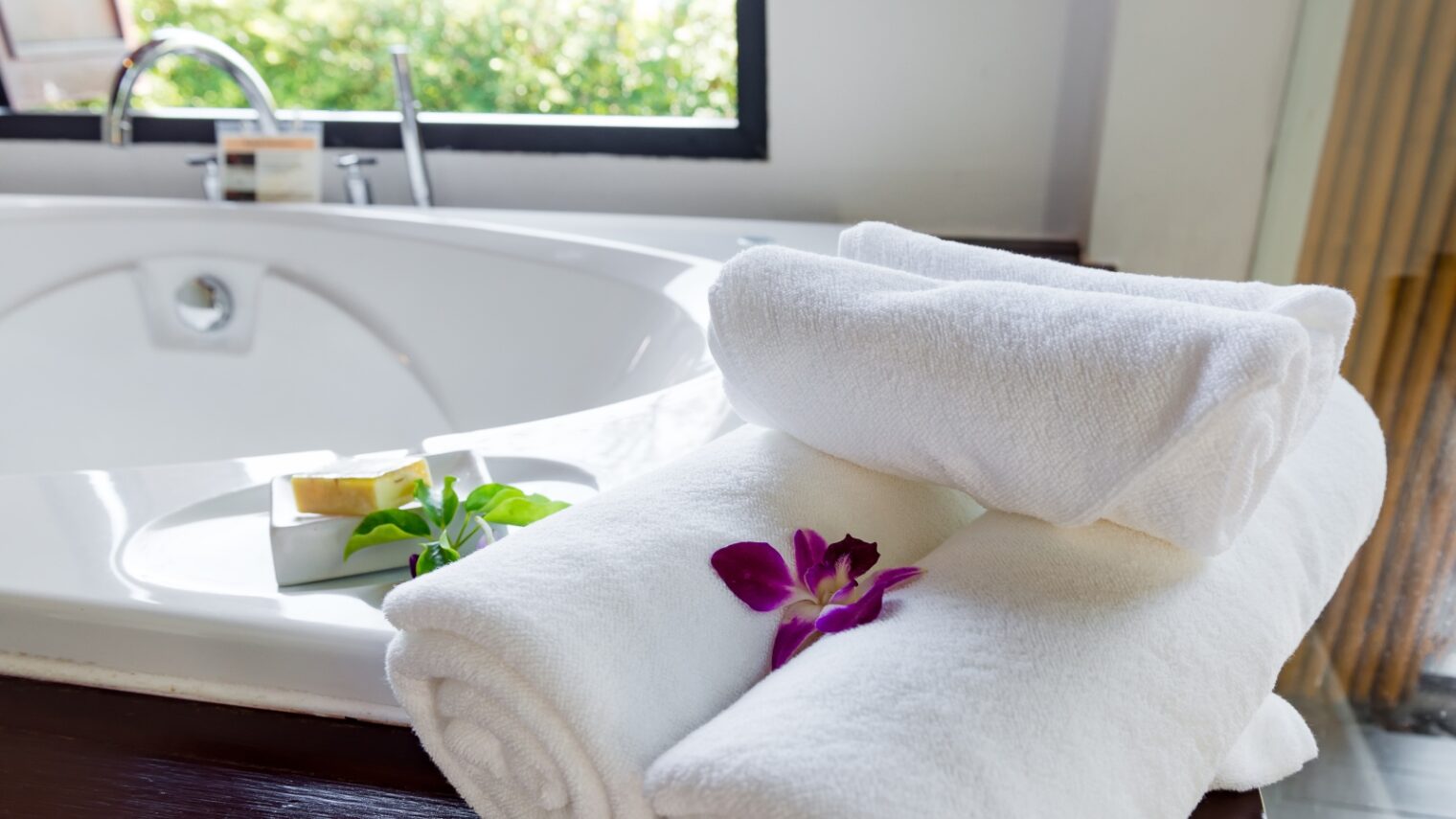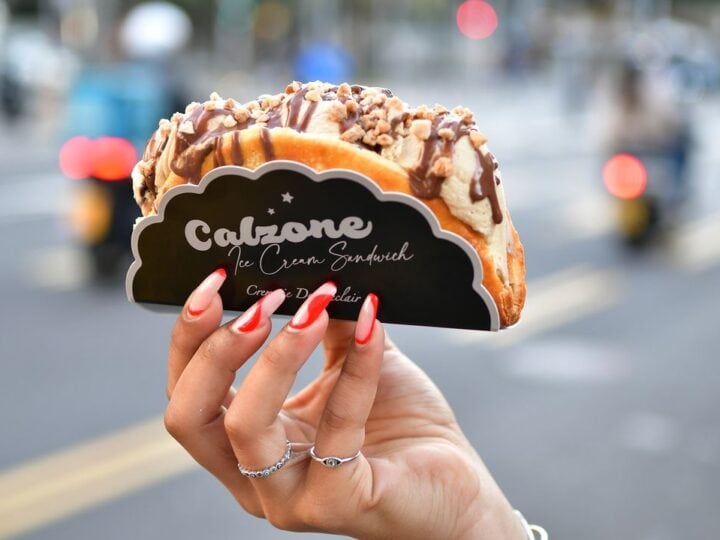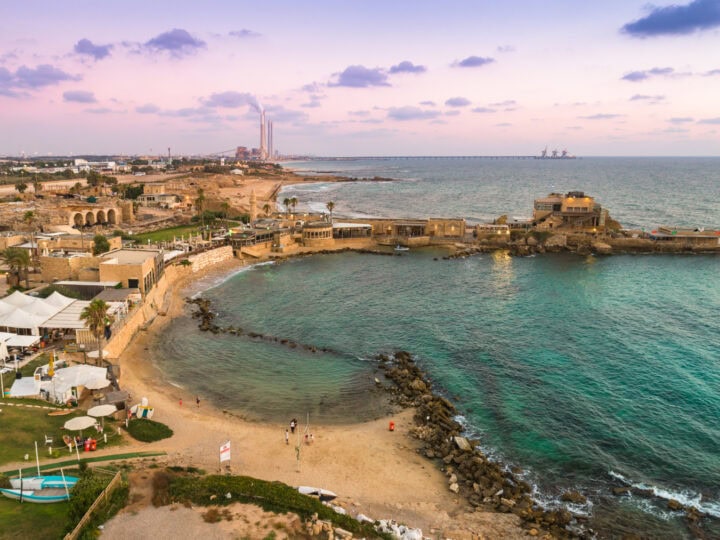The morning of my visit to the headquarters of premium cosmetics and fragrances company Corporell in Ra’anana, I showered, shampooed, conditioned and moisturized with toiletries from our stay at Carmel Forest Spa earlier this year.
The glorious green scent escaping from those bottles sends me instantly (in my head, anyway) back to the hotel’s solarium, lounging in a bathrobe after a massage, glass of herbal tea in hand, life’s stresses forgotten.
This emotional association with a brand’s fragrance is exactly why most of Israel’s luxury hotels trust the expert noses at Corporell to craft them signature ambient scents.
Corporell’s fragrance wizards can bottle that scent into branded products for guest rooms, spa and gift shop. This is a win-win, offsetting the hotel’s operating expense of complimentary amenities while allowing guests to take home an evocative souvenir of their stay.
About 15 years ago, Carmel Forest was the first in the Isrotel chain to realize the benefits of a distinctive AC-diffused fragrance that lingers fondly in the memory of guests – as opposed to the overpowering odor of industrial cleaner or of cheap perfume wafting from an electric diffuser in the lobby.
The strongest sense
Daniel Marciano, who founded Corporell 18 years ago after 15 years as a retailing executive, has a PhD in consumer behavior.
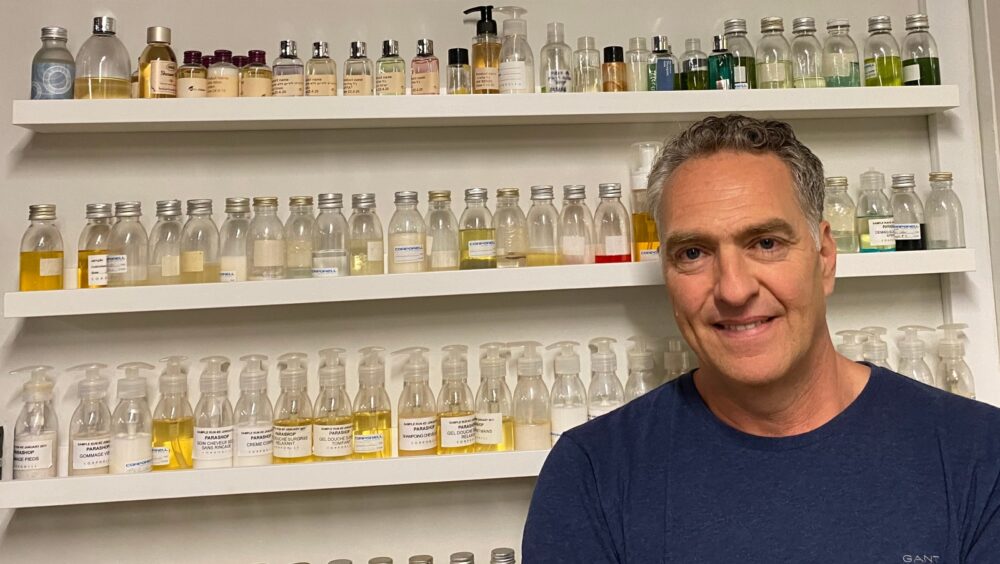
He realized that while retailers and luxury hotels put much expense and effort into visual stimulation, they were ignoring olfactory stimulation.
That was a huge oversight.
The nose’s millions of smell cells send odors for processing in regions of the brain related to emotion and memory, including the amygdala and the hippocampus.
“The sense of smell is much stronger than all the other senses,” Marciano says in fluent English with a faint accent from his native Toulouse, France.
“Did you know that you can never forget a smell? Even if you develop dementia, you will never forget the smell of the house of your aunt or your grandmother. It’s impossible. Yet this most emotional sense is not taken into consideration.”
Everybody’s happy
Many luxury hotel managers are now taking scent into consideration.
Corporell’s ever-expanding portfolio includes more than 90% of Israel’s luxury hotels — for example, the King David and the Waldorf Astoria in Jerusalem, The Norman in Tel Aviv, Scots in Tiberias and Ritz Carlton in Herzliya — along with retail businesses such as El Al, Hollandia and Max Brenner.
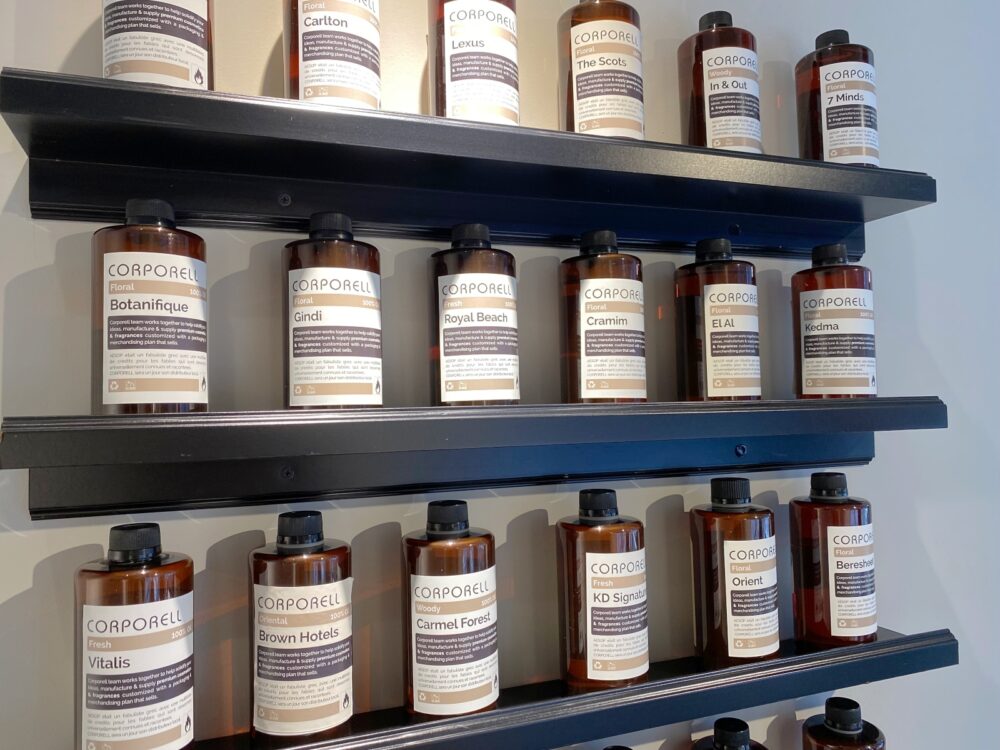
The process of forging an emotional link with end customers begins with Corporell forging an emotional link with the owner or CEO – never lower managers — in the course of concocting a corporate fragrance as a strategic decision.
“Later, they will transfer these emotions naturally to their customers,” Marciano explains.
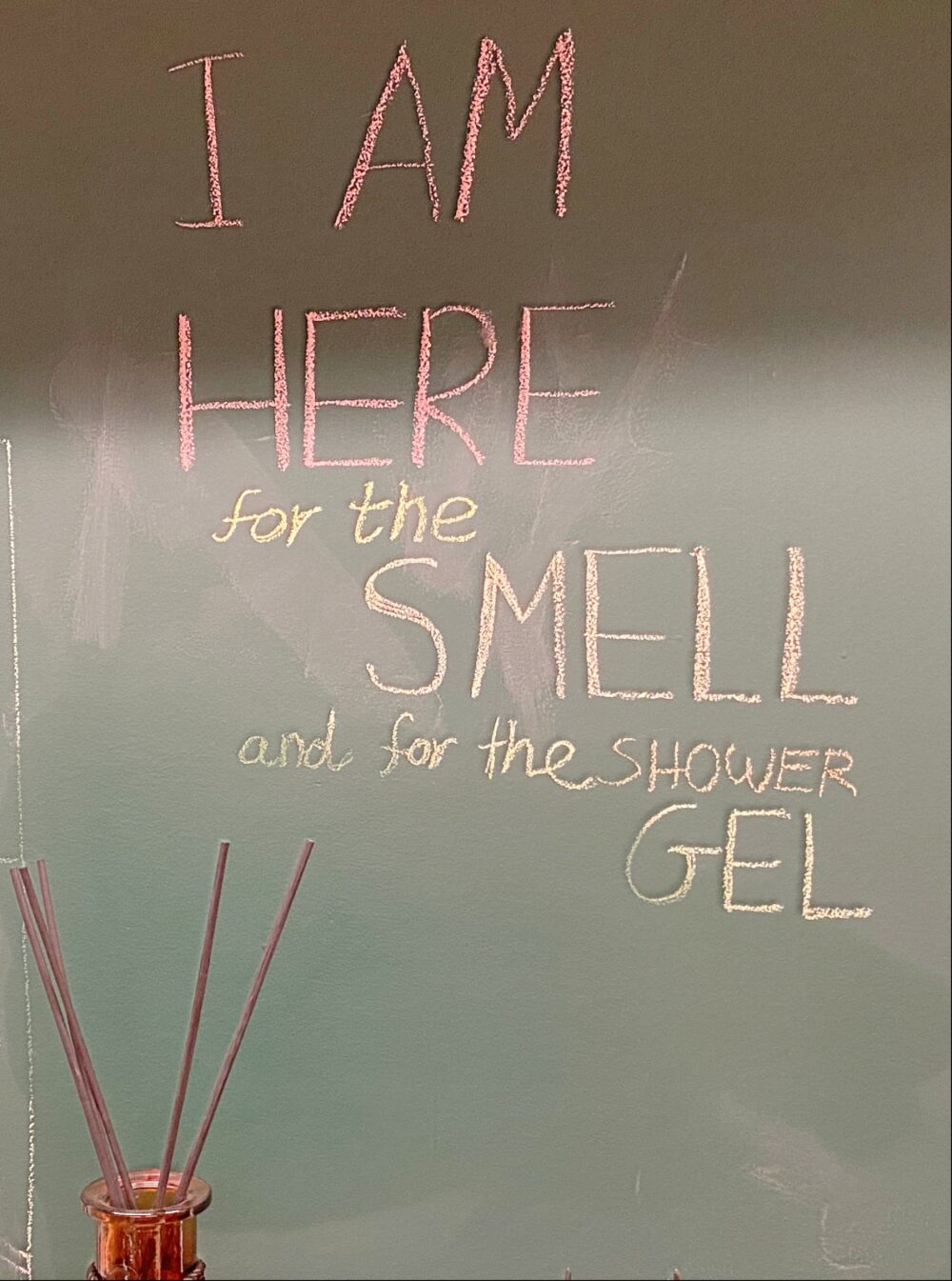
The emotional transfer starts when people see a picture of the branded amenities on hotel booking sites. They sense the fragrance when they enter the lobby, again when they use the complimentary body-care products and again at multiple points such as the spa and the gift shop.
“Six, seven, eight times a stay we are reinforcing this emotional link. This is the reason it works,” says Marciano.
When a hotel guest purchases a scented candle, fragrance diffuser or body-care item, he continues, “the hotel made money. And we made money because we sold the hotel this product. Now you are using it at home, and you have an emotional link to your vacation at the hotel. And everybody’s happy. This is really a unique business model.”
A scent is born
Developing a signature fragrance begins by gathering detailed data about the client’s target population, physical setting and décor, price range, and so on.
“This brief consists of very objective details that we are translating into something subjective because, you know, with a fragrance you may like it and I may hate it,” says Marciano.
Initially, the professionals at Corporell choose from thousands of extracts to formulate 12 to 18 scents that best match the client profile.
For Carmel Forest Spa – the scent I’m sporting for the interview – it had to be green, cool, piney. For Isrotel’s Cramim Resort & Spa (cramim means “vineyards”) it had to be red, warm, fruity. For The Jaffa in Tel Aviv, the signature scent ties in with the citrus trees across the property.
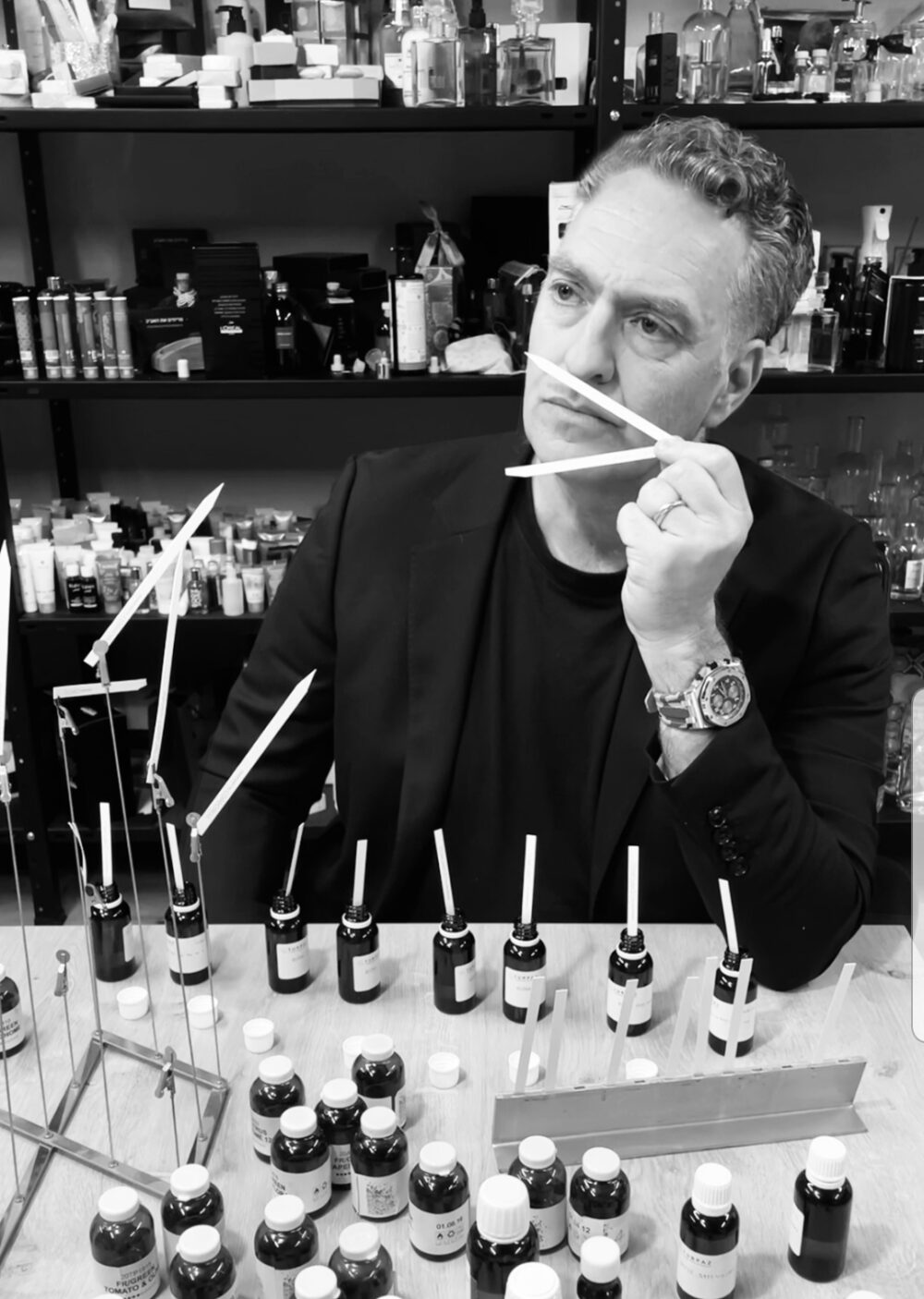
“You have to have an educated nose because it is very difficult to discern differences between smells,” says Marciano. “We have about 16 million colors available to our eyes, but we have billions of smells available to our nose.”
The task is further complicated by technical limitations. For the chosen fragrance to be identical in every application from shampoos to candles, it must retain its integrity when mixed with a variety of bases such as oil, water and alcohol.
About eight Corporell professionals and customer reps sniff diffuser paper strips (mouillettes in French) saturated with each fragrance candidate, with a cleansing whiff of coffee between each. They determine the best three matches with the aid of a statistical calculator representing the preferences of some 20,000 people.
Each finalist fragrance is then diffused in a separate room. Members of the panel enter, sniff, and decide on the preferred fragrance to present to the client.
Kings of a small kingdom
Ten people work at Corporell’s serene, low-lit headquarters where shelves of raw ingredients, packaging materials and finished products line the walls. However, more than 50 people work directly or indirectly for Corporell each month.
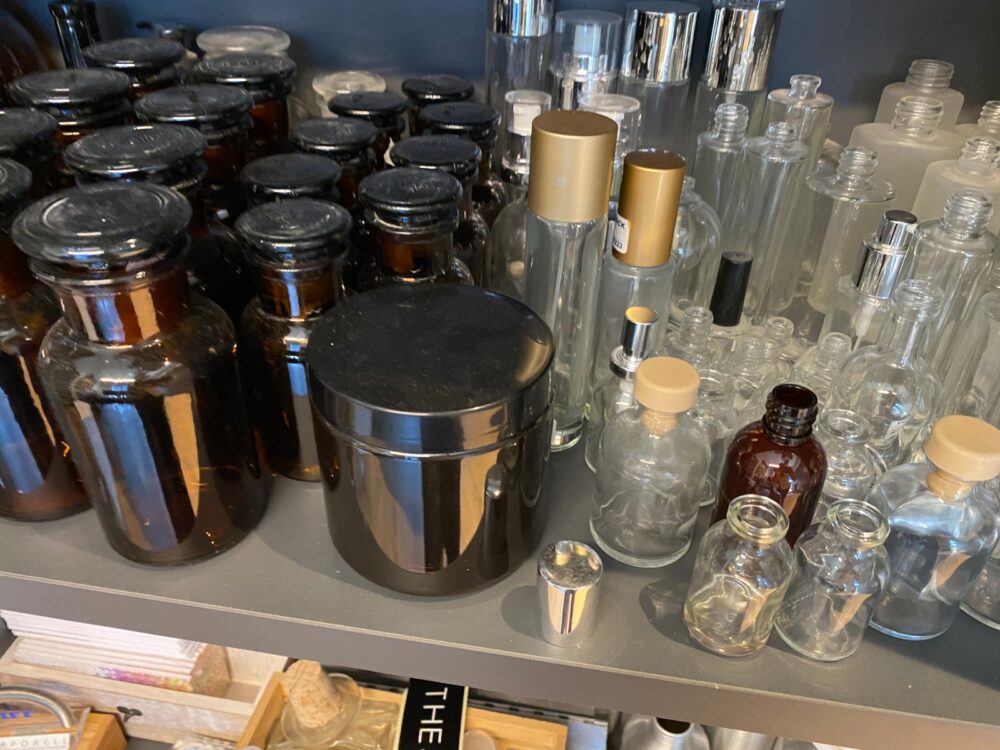
The company’s business model is unique in Israel, Marciano says. Internationally, he knows of one similar business, based in France and the United States, which works with megabrands such as Walmart and Zara.
“We are like kings in a very, very small kingdom,” Marciano says with a smile.
Although ingredients are sourced from many countries, all end products are manufactured and packaged domestically. Marciano says this boosts Israel’s manufacturing sector, gives Corporell better quality-control capability, and gets the goods to clients as quickly as possible.
In addition to signature fragrances branded for hotels and retailers, Corporell develops and manufactures hundreds of premium personal-care, cosmetic and perfume items sold through retail channels such as specialty stores and drugstores.
About 40% of Corporell’s sales are ambient fragrance items such as diffusers, room spray and fabric mist. Thirty percent are toiletries, and the rest are other fragranced items — candles, natural soaps, burner oil and massage oils for spa professionals.
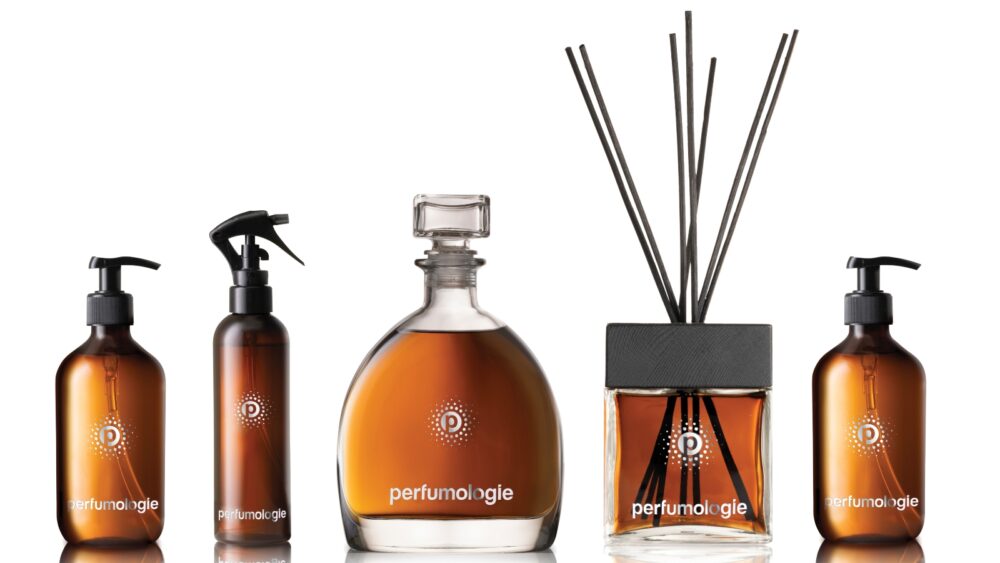
Scent alone isn’t enough to prompt a purchase, however.
Marciano explained that if guests have any negative experience at the hotel – the people in the next room were loud, the room service order arrived late – they won’t buy its signature fragrance no matter how heavenly the smell.
“It’s a combination of place, experience and fragrance, as well as price,” he says, while showing me the line of products Corporell cooked up for the new David Kempinski Hotel in Tel Aviv.
“This is where consumer behavior comes into the equation. Nothing is simple.”




